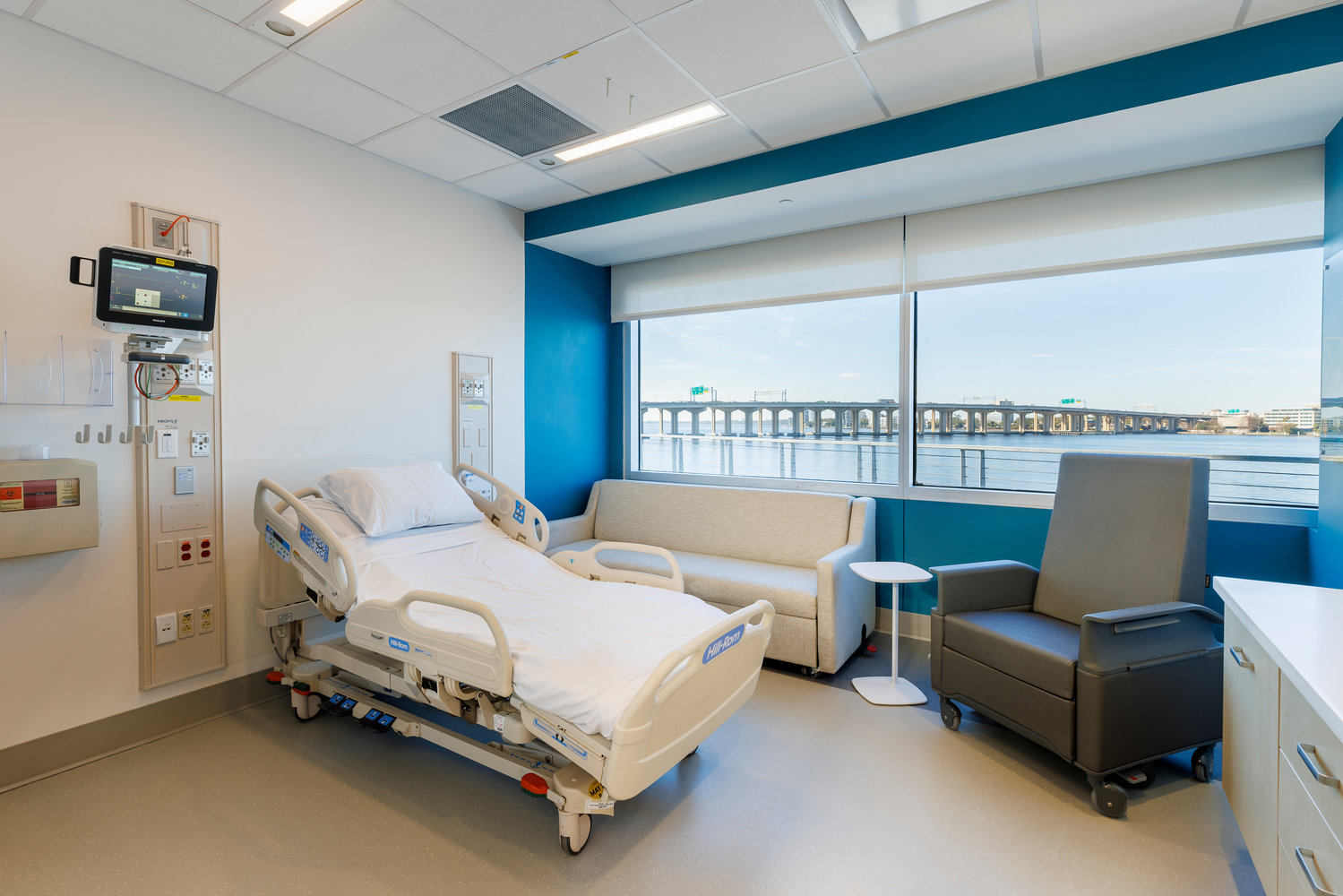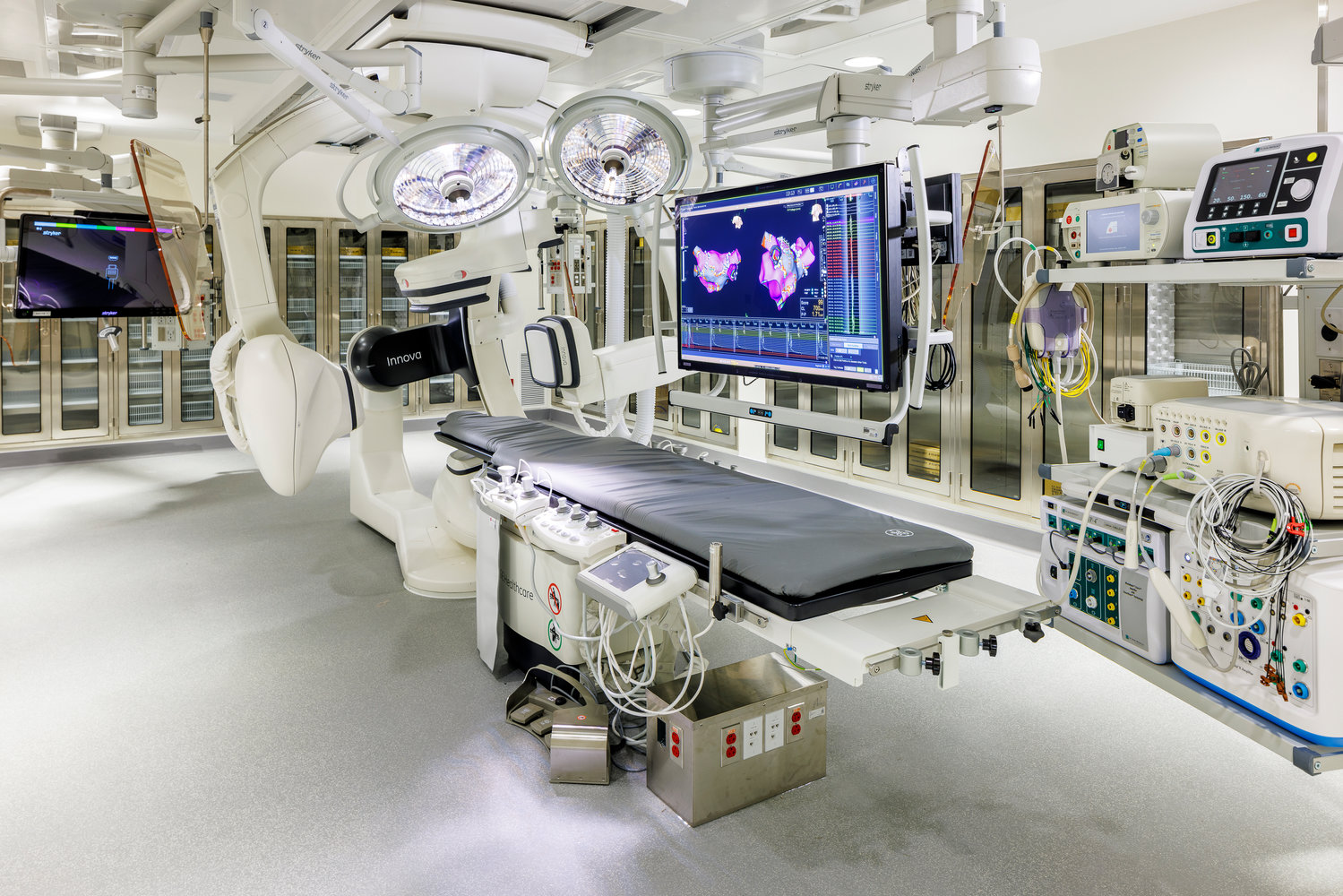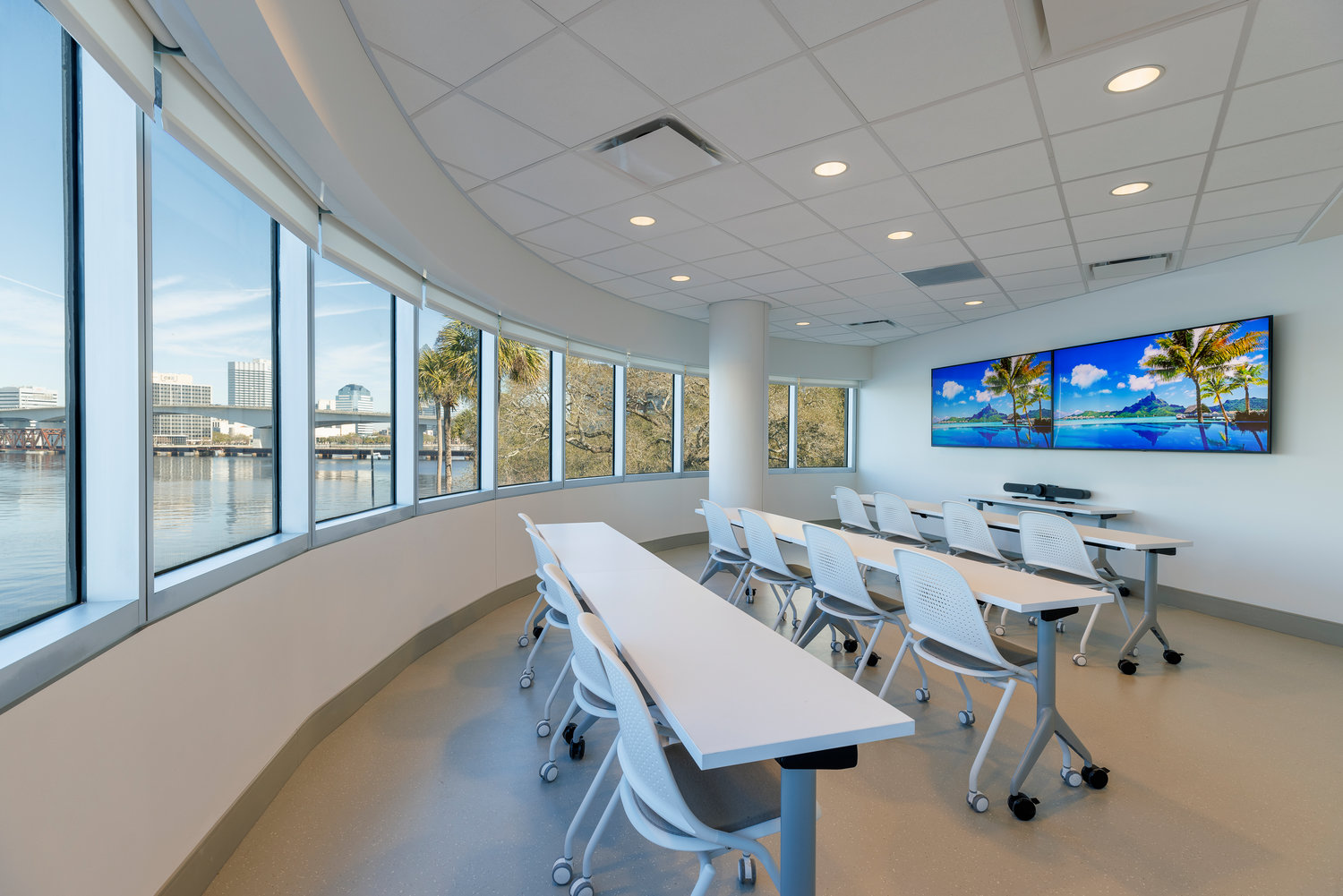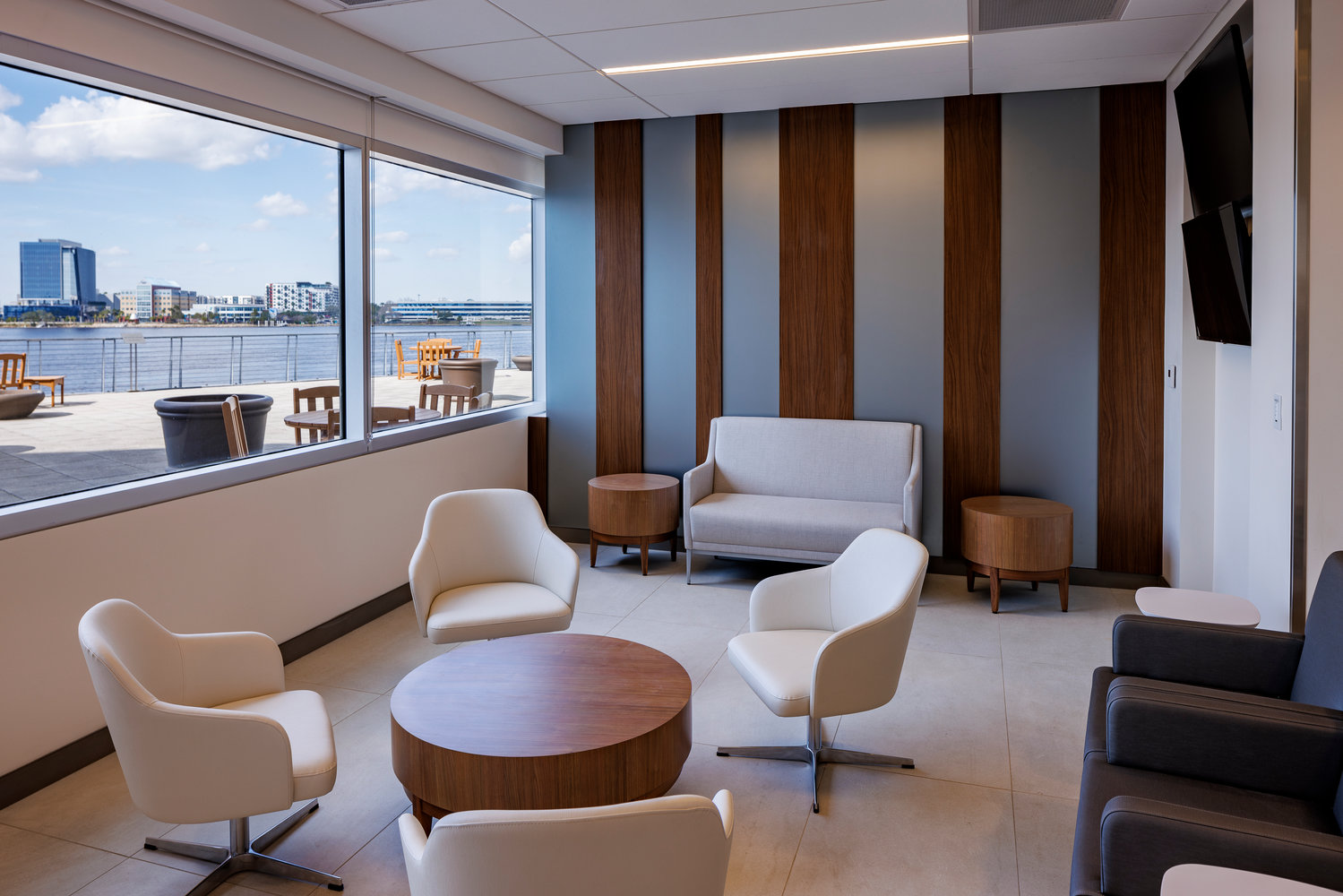Baptist Health opens center to treat heart rhythm disorders
Sixty to 100 beats per minute — that’s a normal resting heart rate for adults. However, one in 18 people experience an irregular heartbeat during their lifetime.
To provide specialized care to people with heart rhythm disorders, Baptist Health opened a Heart Rhythm Center, the region’s first facility of its kind. The new center, a $17 million investment for the health system, is located in the Baptist Heart Hospital and officially welcomed the first patients on Monday, March 20.
The Heart Rhythm Center is a comprehensive, hospital-based destination for caring for the heart’s electrical system, a special field of cardiology called electrophysiology (EP).
“When patients arrive at the new Heart Rhythm Center, their experience will be like checking into a hotel,” explained Matthew McKillop MD, cardiac electrophysiologist and medical director of the electrophysiology program. “It’s truly a ‘one-stop shop.’ We have the latest and greatest technology, highly trained physicians and staff — all in an environment designed to help patients feel relaxed and comfortable.”
Highlights of the 14,400-square-foot center include:
- A dedicated team of caregivers and physicians with specialized training in the diagnosis and treatment of heart rhythm disorders.
- Three hybrid operating rooms equipped with the latest imaging and surgical technology for procedures including ablation and device implantation (pacemakers, defibrillators, etc.).
- Ten patient rooms, each with a scenic view of the St. Johns River.
- A family lounge to make everyone’s stay comfortable, including family and loved ones.
“Every inch of the Heart Rhythm Center is carefully crafted with our patients top-of-mind,” said Michael A. Mayo, president and CEO of Baptist Health. “The Center reflects Baptist Health’s commitment to providing outstanding cardiovascular care to those in our region.”
Heart rhythm disorders
Atrial fibrillation, often called Afib, is the most common type of heart rhythm disorder. It occurs when the upper and lower chambers of the heart are not coordinated, causing the heart to beat too slowly, quickly or irregularly.
Other common heart rhythm disorders include:
- Tachycardia (heart is beating too quickly)
- Bradycardia (heart is beating too slowly)
- Ventricular fibrillation (causes the heart to stop beating)
Symptoms of heart rhythm disorders include:
- Heart palpitations
- Fatigue
- Lightheadedness or dizziness
- Shortness of breath
- Chest pain
- Sweating
“If you have any signs of a heart rhythm disorder, it’s important to seek treatment right away,” said McKillop. “If left untreated, these conditions can cause hospitalization or death. We have the tools to help you get back to feeling like yourself again.”
Demand for care
The explosive demand for electrophysiology care in the region can be credited to two key factors, according to McKillop:
- The growing and aging population in Northeast Florida and Southeast Georgia, as heart rhythm disorders are more common in later life stages.
- The ability to diagnose heart rhythm abnormalities with expanding new technology, like wearable devices.
“Smartwatches have amazing technology that notifies people if they are experiencing a heart rhythm abnormality,” said McKillop. “This helps patients identify an issue and get to a cardiologist earlier than ever. Patients can get help before they have other life-changing symptoms like fatigue and shortness of breath.”
“We are honored to bring this specialized treatment center to Jacksonville to meet the growing health care needs of our community,” said Nicole B. Thomas, hospital president of Baptist Jacksonville. “Lives will be saved here. That’s the most important part of this special place.”














